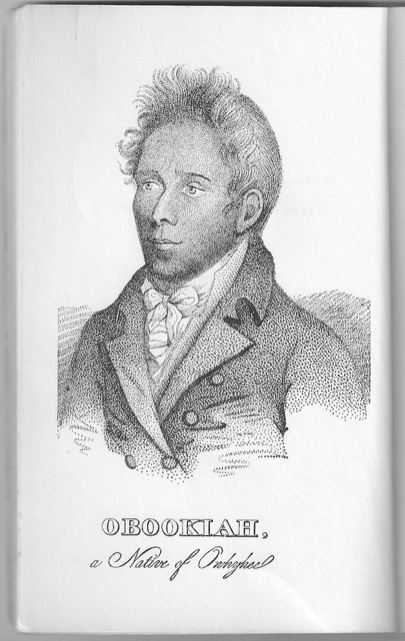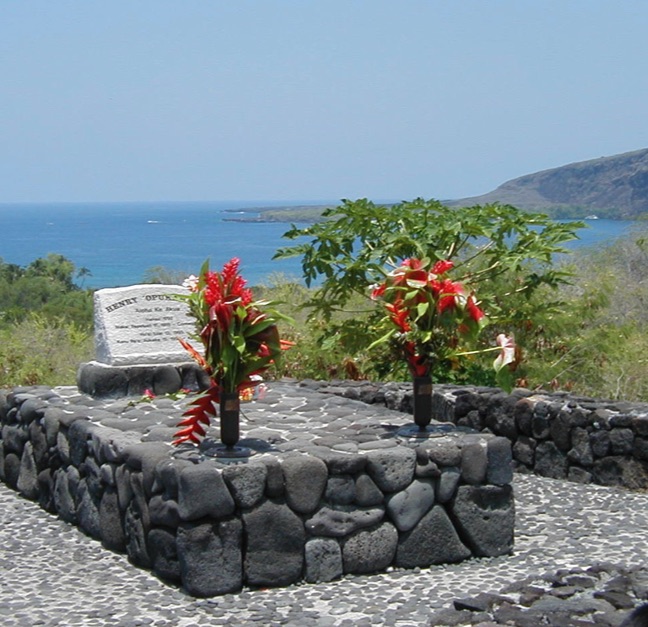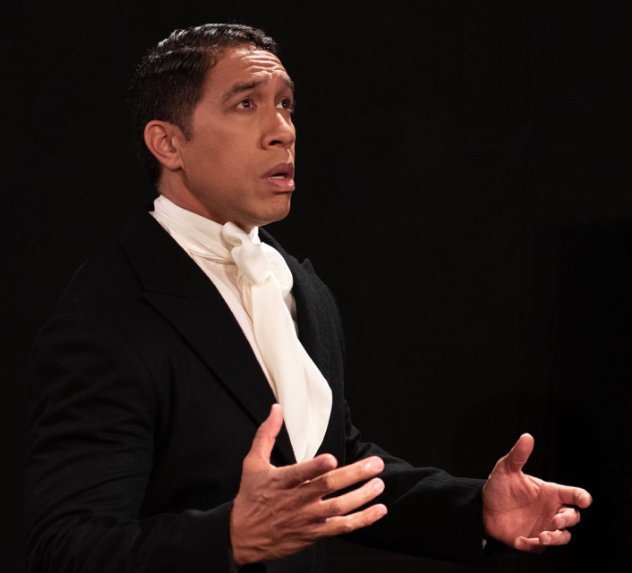May 8, 2020 – The theater performance of “My Name is ʻŌpūkahaʻia” will be recognized with a Preservation Programmatic Award for the one-man play which highlights the story of Henry ʻŌpūkahaʻia, the Native Hawaiian who traveled to New England and inspired the American Board of Commissioners for Foreign Missions to send Protestant missionaries to the Hawaiian Kingdom.
Henry ʻŌpūkahaʻia was born in 1792 at Kaʻu on the island of Hawaiʻi. When he was ten years old, his family was killed in the wars of Kamehameha, and when he was 17, an American sea captain offered to take him along on the ship’s voyage back to New Haven, Connecticut. ʻŌpūkahaʻia learned English on the trip and sought out more education once he arrived.
The future Reverend Edwin W. Dwight, then a senior at Yale, met him in 1809 and agreed to help him find tutoring in English grammar and other subjects of a typical public school curriculum. By 1818, Dwight wrote that ʻŌpūkahaʻia had begun “reducing to system his own native tongue. As it was not a written language, but lay in its chaotic state, everything was to be done…he had made some progress towards completing a Grammar, a Dictionary, and a Spelling-book”.
After converting to Christianity, ʻŌpūkahaʻia had planned to return to Hawaiʻi to preach with the First Company of missionaries but contracted typhus fever and died in 1818 in Cornwall, Connecticut at the age of 26.
The play “My Name is ʻŌpūkahaʻia” is written and performed by actor Moses Goods, a native of Maui. A theater class while he was a junior at Maui High School taught Goods that he enjoyed the creativity and experience of live audience performances. He went on to study theater at the University of Hawaiʻi at Mānoa.
He has performed with community theater groups such as Kumu Kahua, The Actors’ Group, and Honolulu Theatre for Youth. By 2008 he was an educator and storyteller at Bishop Museum, and began to explore play-writing.
Goods has said that, “Early on, I made a list of legends, important events, historical figures, gods and goddesses–stories that I want to tell.” Most of his plays are rooted in Hawaiian history and culture.
“My Name is ʻŌpūkahaʻia” premiered on February 17 2018, exactly 200 years after ʻŌpūkahaʻia’s death. Since then, the piece has been performed across Hawai‘i and in commemoration of the bicentennial anniversary of the Missionaries arrival in Hawai‘i the play traveled to New England for a month-long tour in early 2020.
Each of the performances of “My Name is ʻŌpūkahaʻia” also features Poʻai Lincoln, a prominent local singer/musician and Hawaiian Mission Houses’ former cultural programs coordinator, who accompanies the program with Hawaiian oli (chant) and mele (song).
In 1993 the remains of ʻŌpūkahaʻia were brought from Connecticut and were re-interned in the cemetery of the Kahikolu Congregational Church, near the bay shore where ʻŌpūkahaʻia departed as a cabin boy on a Yankee ship almost two centuries before.
The Preservation Award will be presented to Hawaiian Mission Houses Site and Archives, Moses Goods, and Poʻai Lincoln.
The 46th Annual Preservation Honor Awards Ceremony was originally scheduled to be held in May 2020. However, the current public health crisis caused by COVID-19 has resulted in postponement of the public event. A new date will be selected and notices sent at a later date.
Written by John Williams, Preservation Awards Project Manager.
Sources: “Actor/Playwright Delivers The Goods”, Cheryl Tsutsumi, Ka Wai Ola, March 30, 2020; “A Final Resting Place For Henry ʻŌpūkahaʻia”, Gerald Renner, The Hartford Courant, July 16, 1993; “ʻŌpūkahaʻia: The Catalyst For Christian Missionaries”, C.E. Chambers, Waimea Gazette, August 2001.



